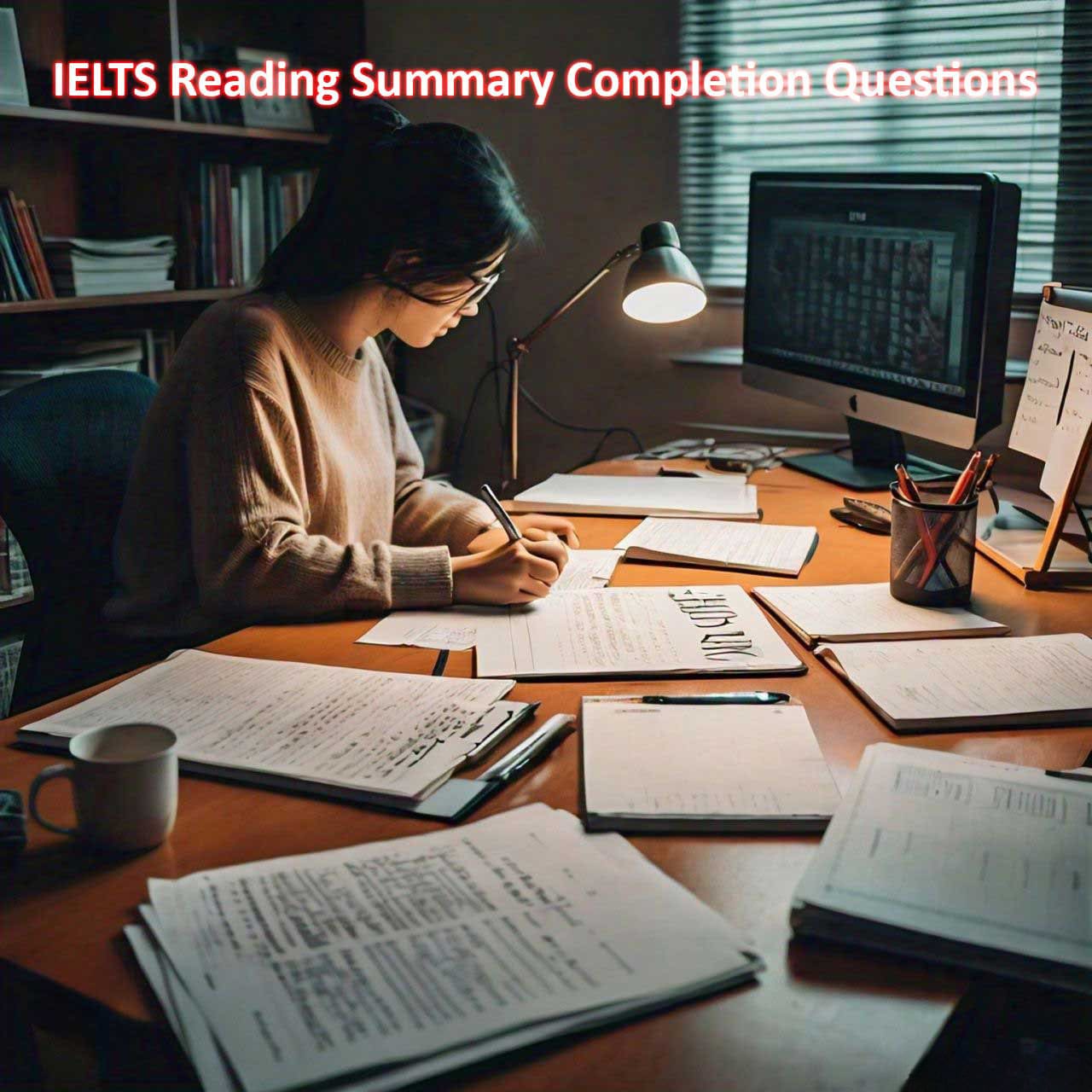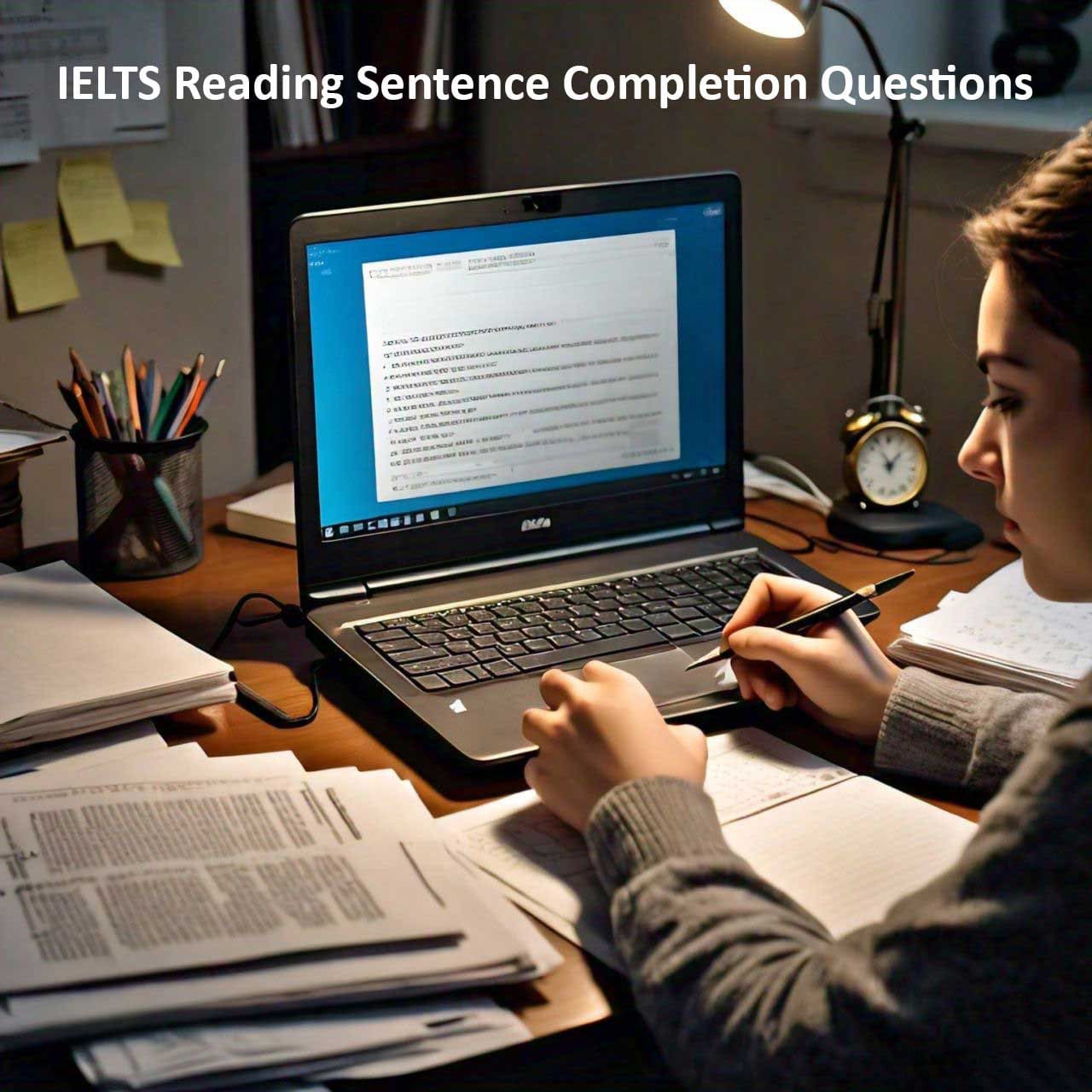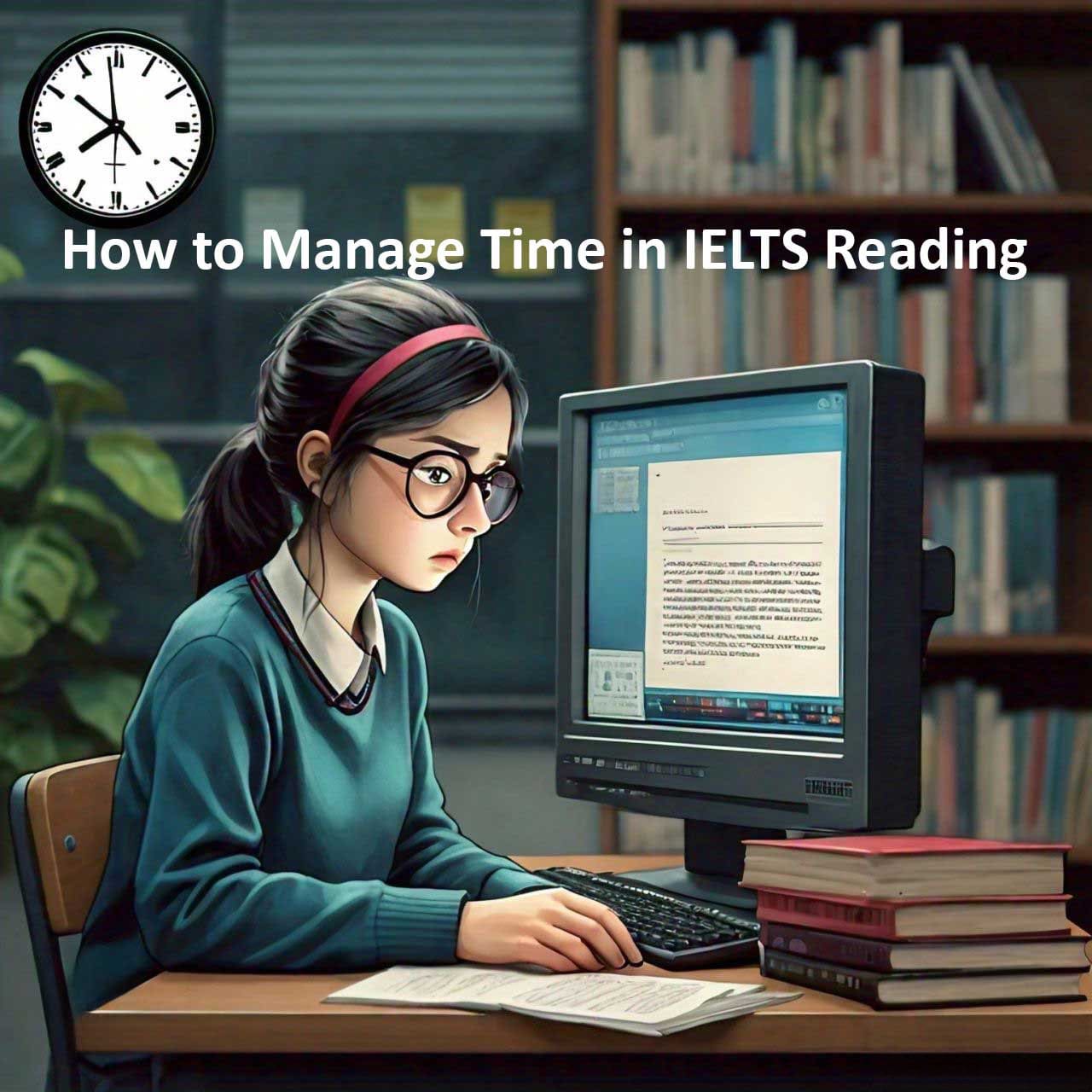For many IELTS test-takers, summary completion questions in the Reading section can feel like a daunting challenge. These tasks require not only strong reading comprehension skills but also the ability to extract and paraphrase key information from the text accurately. However, with the right strategies and consistent practice, you can master summary completion questions and significantly improve your IELTS Reading score.
In this guide, we’ll break down everything you need to know, from understanding the question format to applying expert strategies and working through examples. Let’s dive in!
Table of Contents
What Are IELTS Reading Summary Completion Questions?
Summary completion questions are a common feature in the IELTS Reading test. In these tasks, you are given a summary of part of the text with several blanks that need to be filled in. The answers can either be chosen from a provided list of words or directly from the text itself.
These questions test your ability to:
- Identify key points in the text.
- Understand paraphrased ideas.
- Accurately transfer information from the passage to the answer sheet.
Example:
Summary:
The _____ of the project was delayed due to unexpected challenges, resulting in a _____ of costs.
Passage Excerpt:
“The implementation of the project faced significant delays due to unforeseen difficulties, leading to an increase in costs.”
Answer:
- Implementation
- Increase
Why Are Summary Completion Questions Challenging?
These questions can be tricky for several reasons:
- Paraphrasing: The summary often involves paraphrasing, using synonyms or rephrased sentences, which can make it challenging to locate answers in the text.
- Skimming vs. Scanning in IELTS Reading: It’s essential to know when to skim for a general understanding and when to scan for specific details to save time and increase accuracy.
- Time Management in IELTS Reading: With limited time to complete the Reading section, staying focused and prioritizing questions effectively is critical.
- Spelling and Grammar in IELTS Reading: Incorrect spelling or grammatical errors can result in lost marks, so double-check your answers carefully.
Proven Strategies for Mastering Summary Completion Questions
Here are some tried-and-tested strategies to help you excel:
1. Read the Instructions Carefully
Before starting, pay close attention to the instructions. They will tell you:
- Whether to use words from the text or a provided list.
- The word limit for each blank (e.g., “NO MORE THAN TWO WORDS”).
2. Understand the Summary Context
Read the summary first to get an idea of its overall meaning. This will help you predict the type of information needed for each blank (e.g., a noun, a verb, or an adjective).
3. Identify Keywords
Highlight important keywords in the summary and look for matching ideas or synonyms in the passage. For example:
- Summary Keyword: “delayed”
- Passage Synonym: “postponed”
4. Follow the Order of Information
The answers usually appear in the same order as the information in the text. Use this to your advantage by scanning the passage sequentially.
5. Use Context Clues
Pay attention to the words around the blanks to determine the grammatical form and meaning of the missing word. For instance:
Sentence: The _____ of the new policy improved workplace efficiency. Clue: A noun is required.
6. Practice Skimming and Scanning
- Skimming: Quickly read for the general idea of the passage.
- Scanning: Look for specific words, phrases, or synonyms related to the summary.
7. Double-Check Your Answers
Ensure your answers fit grammatically and logically into the summary. For example:
Incorrect: The “implemented” of the project… Correct: The “implementation” of the project…
Examples of Summary Completion Questions
Example 1:
Passage Excerpt:
“The development of renewable energy sources is critical to reducing carbon emissions and combating climate change. Solar power, in particular, has gained popularity due to its efficiency and cost-effectiveness.”
Summary:
The growth of _____ energy is vital for lowering carbon emissions, with _____ energy being both efficient and affordable.
Answer:
- Renewable
- Solar
Example 2:
Passage Excerpt:
“Many studies highlight the importance of a balanced diet and regular exercise for maintaining good health. These habits not only reduce the risk of chronic diseases but also improve overall well-being.”
Summary:
Research emphasizes the significance of both a _____ diet and consistent _____ to ensure good health.
Answer:
- Balanced
- Exercise
Common Mistakes to Avoid
Ignoring the Word Limit: Always adhere to the word limit specified in the instructions.
- Overlooking Synonyms: Remember that the summary may use synonyms or paraphrased expressions.
- Neglecting Grammar: Make sure your answer fits grammatically into the sentence.
- Not Reviewing Answers: Use any remaining time to check for errors in spelling, grammar, or logic.
Resources for Practice
Here are some useful resources to improve your skills:
- Official IELTS Website
- IELTS Preparation Books
- “The Official Cambridge Guide to IELTS”
- Online Practice Platforms
- Websites like IELTS Buddy offer free practice questions.
- YouTube Channels
- Check out channels like “IELTS Liz” and “E2 IELTS” for tips and tutorials.
Final Thoughts
Mastering IELTS Reading summary completion questions may seem challenging at first, but with consistent practice and the strategies outlined above, you can significantly improve your performance. Focus on understanding the text’s main ideas, identifying paraphrased information, and staying within the word limit. Don’t forget to review your answers for spelling and grammatical accuracy.
Remember, every practice session brings you one step closer to your target band score. For further topics about IELTS Reading visit Reading section of this blog. Stay motivated and keep practicing. You’ve got this!



